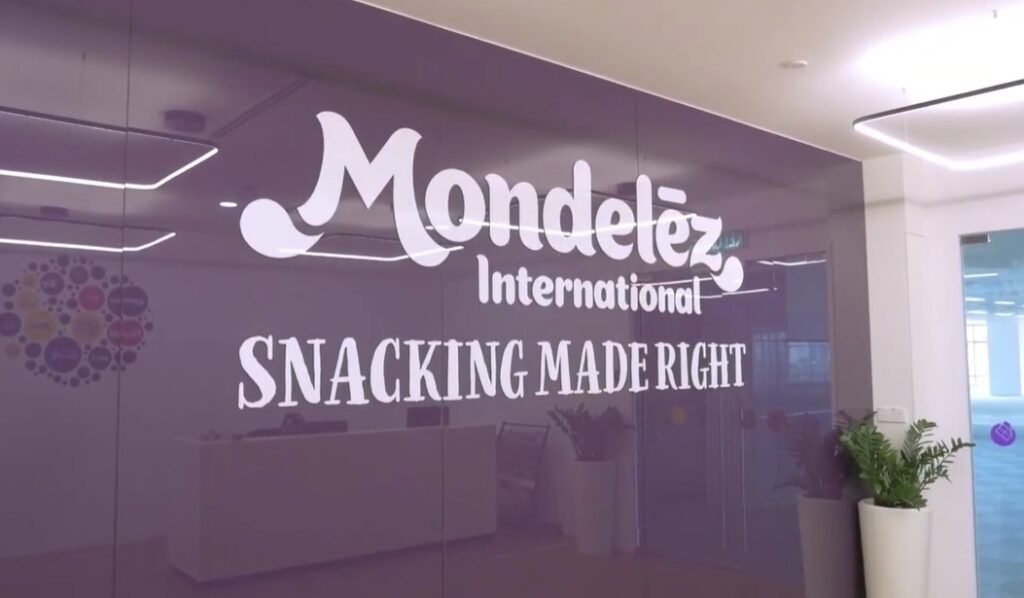In recent years, global supply chains have faced unprecedented disruptions due to various factors, from natural disasters to geopolitical tensions. One prominent example of such disruption occurred with Mondelez International, a major player in the global snack food industry. In 2018, Mondelez experienced a significant supply chain disruption that affected its operations and highlighted the critical role of food insurance in managing and mitigating such risks. This case study explores the supply chain disruption at Mondelez International, its impact on the company, and the broader implications for food insurance and risk management.
Background of Mondelez International
Company Overview
Mondelez International, headquartered in Chicago, Illinois, is a global leader in snack foods. The company’s portfolio includes well-known brands such as Oreo, Cadbury, and Toblerone. Mondelez operates in over 150 countries and has a complex supply chain that spans raw material sourcing, manufacturing, distribution, and retail.
The Supply Chain Disruption
In June 2018, Mondelez International experienced a significant disruption in its supply chain caused by a cyberattack. The attack, known as the NotPetya ransomware attack, targeted global businesses and caused widespread disruptions. Mondelez was one of the many companies affected by this attack, which had severe consequences for its supply chain operations.
Details of the Disruption
Nature of the Attack
The NotPetya ransomware attack was a sophisticated cyberattack that encrypted data on affected systems, rendering them inaccessible. The ransomware spread rapidly across networks, disrupting business operations and causing significant damage. Mondelez’s IT systems were compromised, leading to the disruption of its supply chain management and manufacturing processes.
Impact on Operations
- Production Delays: The cyberattack severely impacted Mondelez’s ability to manage its production schedules. The disruption of IT systems affected inventory management, order processing, and production planning. As a result, Mondelez faced delays in producing and delivering its products to customers.
- Supply Chain Coordination: The attack disrupted Mondelez’s ability to coordinate with suppliers and distributors. Communication breakdowns and the lack of access to critical data hindered the company’s ability to manage its supply chain effectively.
- Financial Losses: The disruption led to significant financial losses for Mondelez. The company experienced increased costs due to production delays, supply chain interruptions, and the need for IT system recovery. Additionally, Mondelez faced potential losses in revenue due to the inability to fulfill orders and meet customer demand.
- Operational Recovery: Mondelez invested considerable resources in recovering from the cyberattack. The company undertook efforts to restore its IT systems, enhance cybersecurity measures, and mitigate the impact on its supply chain. The recovery process involved both short-term measures to address immediate issues and long-term strategies to prevent future disruptions.
Implications for Mondelez International
Financial and Reputational Impact
The supply chain disruption had a significant impact on Mondelez’s financial performance and reputation:
- Revenue Impact: Mondelez experienced a decline in revenue due to the inability to fulfill orders and meet customer demand. The disruption affected the company’s sales and profitability, leading to financial losses.
- Increased Costs: The costs associated with the cyberattack included expenses related to IT system recovery, increased production costs, and operational disruptions. Mondelez incurred substantial costs to address the immediate impact of the attack and to implement long-term cybersecurity measures.
- Reputational Damage: The supply chain disruption affected Mondelez’s reputation with customers, suppliers, and investors. The company faced scrutiny over its ability to manage and recover from the cyberattack. Restoring trust and confidence required significant efforts in communication and transparency.
Implications for Food Insurance
Insurance Coverage and Claims
The Mondelez supply chain disruption underscores several key aspects of food insurance and the importance of adequate coverage:
- Cyber Insurance: The NotPetya attack highlighted the need for robust cyber insurance coverage. Cyber insurance protects businesses against losses resulting from cyberattacks, including data breaches, ransomware attacks, and other cybersecurity incidents. For Mondelez, having comprehensive cyber insurance coverage would have been crucial in managing the financial impact of the attack.
- Business Interruption Insurance: Business interruption insurance covers lost income and additional expenses incurred due to disruptions in operations. The Mondelez disruption affected production and sales, making business interruption insurance an essential component of the company’s risk management strategy. Effective coverage helps mitigate the financial impact of operational disruptions and supports recovery efforts.
- Supply Chain Insurance: Supply chain insurance provides coverage for losses related to disruptions in the supply chain, including those caused by external factors such as natural disasters, cyberattacks, and supplier failures. For Mondelez, supply chain insurance would have been valuable in addressing the financial impact of the disruption and managing risks associated with supply chain vulnerabilities.
- Crisis Management Coverage: Crisis management coverage assists with managing the costs of public relations efforts, legal expenses, and other crisis-related expenditures. The Mondelez disruption required effective crisis management to address reputational damage and communicate with stakeholders. Having crisis management coverage helps support recovery efforts and mitigate the impact of the incident on the company’s reputation.
Risk Management and Prevention
The Mondelez supply chain disruption highlights the importance of proactive risk management and preventive measures:
- Cybersecurity Measures: Strengthening cybersecurity measures is essential for protecting against cyberattacks. Implementing robust IT security protocols, conducting regular vulnerability assessments, and investing in employee training are critical for mitigating the risk of cyber incidents.
- Incident Response Planning: Developing a comprehensive incident response plan that includes protocols for addressing cyberattacks and other disruptions is crucial for managing crises effectively. Mondelez’s response to the NotPetya attack demonstrated the need for preparedness and quick action in addressing IT and supply chain disruptions.
- Supply Chain Resilience: Building resilience into the supply chain is essential for managing risks and ensuring continuity of operations. This includes diversifying suppliers, maintaining safety stock, and implementing contingency plans for managing supply chain disruptions.
- Insurance Review and Adaptation: Regularly reviewing and adapting insurance coverage to address evolving risks is important for managing potential disruptions. Businesses should work closely with insurance providers to ensure that their coverage remains comprehensive and relevant to their risk profile.
Lessons Learned and Future Considerations
Enhancing Cybersecurity
The Mondelez supply chain disruption underscores the importance of enhancing cybersecurity measures. Investing in advanced cybersecurity technologies, conducting regular security assessments, and promoting a culture of cybersecurity awareness are key strategies for protecting against cyber threats.
Improving Crisis Management
Effective crisis management is essential for addressing the impact of disruptions and restoring operations. Developing and regularly updating crisis management plans, including communication strategies and recovery protocols, helps ensure a swift and coordinated response to incidents.
Strengthening Supply Chain Resilience
Building resilience into the supply chain helps mitigate the impact of disruptions and ensures continuity of operations. Businesses should focus on diversifying suppliers, maintaining safety stock, and implementing contingency plans to address potential vulnerabilities.
Adapting Insurance Coverage
Regularly reviewing and adapting insurance coverage to address emerging risks is crucial for managing potential disruptions. Businesses should work with insurance providers to ensure that their coverage remains comprehensive and aligned with their risk management needs.
Conclusion
The supply chain disruption experienced by Mondelez International due to the NotPetya ransomware attack was a significant event with far-reaching implications for food safety, risk management, and insurance. The incident highlighted the importance of having robust insurance coverage, implementing proactive risk management measures, and enhancing cybersecurity.
For Mondelez, the disruption led to substantial financial and reputational challenges but also provided valuable lessons for the broader food industry. By adopting comprehensive risk management strategies, investing in insurance coverage, and focusing on continuous improvement, businesses can better navigate risks and safeguard their operations against future disruptions. The experience underscores the need for vigilance, preparedness, and resilience in managing food safety and insurance in an increasingly complex and interconnected world.



